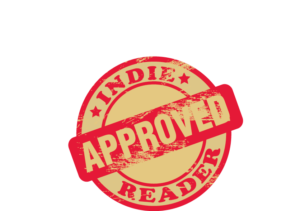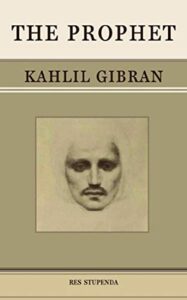Brash Flow received a 4+ star review, making it an IndieReader Approved title.
Following find an interview with author Patrick Holm.
What is the name of the book and when was it published?
Brash Flow, a novella in 17 tracks. It was published in 2020.
What’s the book’s first line?
John Henry was searching for two things.
What’s the book about? Give us the “pitch”.
Brash Flow is a dive into a dystopian future where hip hop is king. An environmental catastrophe has flipped the racial dynamic and fair skinned humans (“Whites” in the novella) only survive through the use of Solar Mitigation Resistance Kits and have been relegated to Wrashtowns by the Pigeon Code, an absurd future interpretation of Jim Crow era laws. John Henry, the main character, is searching for the perfect beat to pull himself out of the Wrash. He thinks his way to the top is through parlaying old technology with new to springboard him to the front of the game. A White terrorist organization, the Graft, and the Pigeon Police are after John Henry to put his technology to use for their own gains. The story follows John Henry as he gets entangled in this complex dance and just tries to survive.
What inspired you to write the book? A particular person? An event?
So many things in my journey inspired me to write this book. I wanted to create a story showcasing the multifaceted complexity of hip hop, while trying to an absurd look at a flipped racial dynamic. I thought maybe this might make people who think they aren’t racist or haven’t benefitted from a racist system look at things in a different light. Maybe crack the door to asking some questions that might not otherwise have bubbled to the surface. My other motive to write it was to introduce people to the multiple levels of hip hop, from the mainstream to the underground. This music has taught me so much and if someone doesn’t think any differently from what I write but goes onto listen to an artist that changes their mind then that’s a success for me.
What’s the main reason someone should really read this book?
This book offers a different perspective. Wherever you’re coming from, I think this book will force you to look at how you engage with people on a daily basis and even how our system works. I think we don’t ask enough questions of the status quo and I hope this book will force people to ask questions, hopefully the uncomfortable ones, that instigate change.
What’s the most distinctive thing about the main character? Who-real or fictional-would you say the character reminds you of?
I think the most distinctive thing about the main character is his depth of past hip hop lyrical knowledge. It would be like if you met someone today who could name the history of jazz to you musician by musician and say what they did even though some of it was so long ago in the history of that genre.
If they made your book into a movie, who would you like to see play the main character(s)?
I think someone with a demeanor and on-screen presence like Lakeith Stanfield for John Henry. For the other main character, I think Lupita Nyong’o.
When did you first decide to become an author?
I’ve been wanting to write books since I was a little kid. I use to get excited about weekly assignments requiring us to create a story using all of our vocabulary words. I enjoyed the challenge and creativity it fostered in me. The era we’re going through and the racism we see on a daily basis throughout our system made me feel like it was now or never to write this book.
Is this the first book you’ve written?
It is. The idea of this book has been floating around in my head for the last ten years. I tried to dismiss it because I was busy, but it kept coming back and nagging me and scratching at my brain. When I described this feeling to my wife, she said we got to figure out how we can make this book a reality and then we did.
What do you do for work when you’re not writing?
I’m a civil engineer mainly focused on the design of transportation and public works infrastructure. It’s cool to be a part of building a community. I think parts of that sort of community building help with my creativity in world building on some level. I see it at the ground level first and then fill the characters in on how they would interact with it and maybe those details don’t even make it to the story, just stay in my head.
How much time do you generally spend on your writing?
It took me about two years to complete the novella with trying to fit it in between work and my family. It probably took me two to three days to write one track in the novel and then another two to three days to edit the same track. These days weren’t continuous though and those two or three days might happen over a month or two-month period.
What’s the best and the hardest part of being an indie?
The best part for me was being able to write about what I was passionate about on my own schedule. The hardest I think is trying to make do with what I had when it came to beta-reading, editing, and marketing. When you’re doing it on the side, it’s hard to inspire people to be passionate about your vision. Probably for every five people I asked to read it, one would read it. I put that on me though. I didn’t always let my passion about it shine through in an effort to not be overbearing.
What’s a great piece of advice that you can share with fellow indie authors?
I think the best advice that I got along my journey was to schedule time to write and I completely agree with it. If you’re not intentionally setting aside time to write, writing will never happen. Don’t worry about how it comes out at first, just put the story down. It really made a big difference for me and my approach to writing.
Would you go traditional if a publisher came calling? If so, why?
I would be open to it. I think the main reason people write a story or do an album or any sort of creative endeavor is to share it with people. If I was able to share the story with more people, I would be open to hearing what that process looked like and how it would change my story before going forward with it.
Is there something in particular that motivates you (fame? fortune?)
Books constantly change my life. Sometimes in big ways and more often in little ways. The potential of someone reading my story and changing for the positive is a huge motivation for me. It’s a way I can impact or change the world, even on an incremental level, and I think that’s powerful.
Which writer, living or dead, do you most admire?
This is such a tough question. I probably would settle on two, Khalil Gibran and Kurt Vonnegut. I’ve probably read The Prophet more than a hundred times and every time I get something different. It’s also my favorite book to give to people. Kurt Vonnegut wrote powerful books with humor and I think that is incredibly hard to do well. He also wrote while working which I respect even more now from doing it only once.
Which book do you wish you could have written?
It is hard to envision writing someone else’s work. I think what comes to mind is the comedy and absurdity that Tom Robbins writes with. Writing something like Jitterbug Perfume sounds like it would be a fun adventure in religion, world-building, and comedy.


